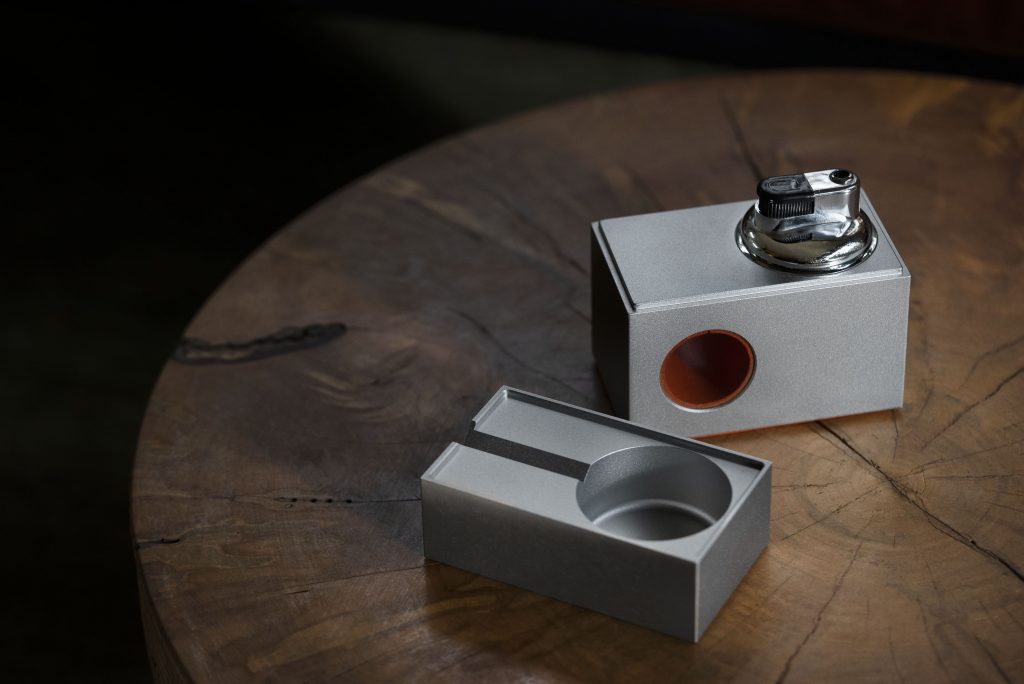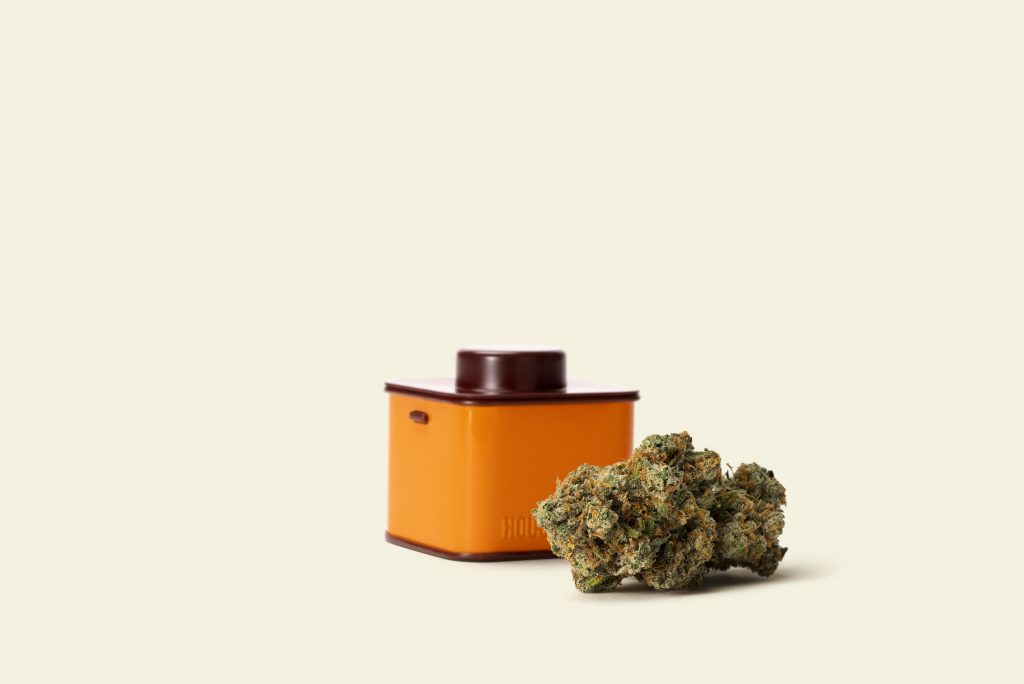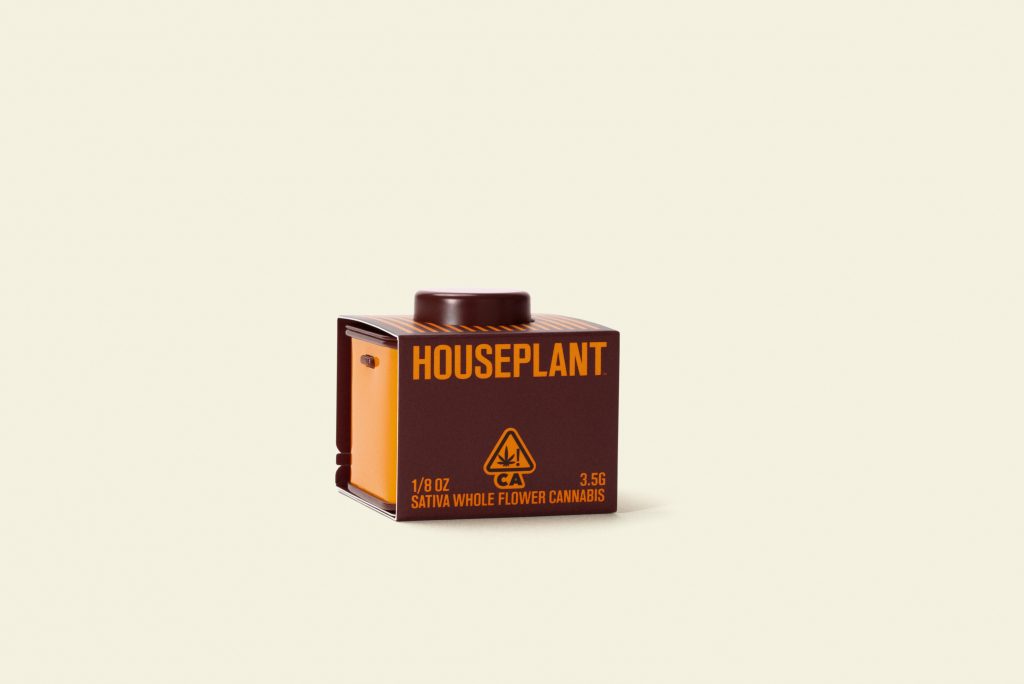Cannabis-Centric Houseplant’s Many Missions
Seth Rogen’s brand strives to do their part in righting the wrongs of federal cannabis prohibition

Seth Rogen, an unabashed marijuana enthusiast in many of his acting roles as well as in real life, launched the cannabis-centric company Houseplant in the US this month with co-founder Evan Goldberg. The brand (which debuted in Canada circa 2019) emphasizes premium cannabis flower, a gorgeous accessory line and impressive social responsibility initiatives—all of which set it apart from many others in the tremendously saturated industry. Rogen teased Houseplant’s forthcoming ceramic designs by posting pictures of his own on Instagram. To telegraph the label’s future strains, he posted a video of how he rolls a joint.
But Houseplant is more than a side hobby for Rogen and Goldberg. The two, along with an expert group of colleagues, strive to improve the current cannabis landscape with design-minded products and finer, fresher flowers. The team will also work to undo harm done by cannabis prohibition, ensuring that the future of the industry—which seems bound for federal legalization—is equitable.

“Our founders really recognize that they’ve been celebrated for their cannabis consumption over the years, while understanding that others—predominantly people of color—have been criminalized for it,” Melissa Greenberg, Houseplant’s Chief Consumer Officer, tells us. “They understand that by realizing their lifelong dream of creating a cannabis lifestyle brand comes the responsibility for them personally, but also as a brand, to help right those wrongs. We’ve done a lot of listening, in our coming into the US, and talking to policy makers, advocates, impacted people and grassroots organizers—to understand what it is that Houseplant can do to really help educate consumers about the history of cannabis and the war on drugs as well as help move reform and smart legalization forward.”
Emphasizing their public health approach to cannabis, Houseplant relies on a handful of pillars that will guide the company’s policy and decision-making: education and advocacy, community empowerment and economic opportunity and diversity, equity and inclusion. More specifically Houseplant plans to host an in-house incubator for entrepreneurs disproportionately impacted by drug legislation, source their materials from companies committed to similar diversity and inclusion statements, educate their own employees on the industry’s history and best practices moving forward, and oversee professional and career development programs for employees and potential hires. These efforts are crucial to Houseplant, and are tied to its paramount intention: to shift the broad consensus from perceiving cannabis as a punishable vice to an everyday product.

“We don’t believe that weed is an ‘OK’ product, we believe that weed is an exceptional product, and that it needs to be given its due reverence,” Michael Mohr, Houseplant’s CEO, says. “We obsess about the cannabis consumer and how to create products that relate to them. Not in a way where they’re wanting to hide product under their bed or stuff it into some drawer, but in a way that gives the same reverence to any object that you buy for your home. That is why we have put so much thought and design into our cannabis tins and into our House Goods products—by giving more consideration to the cannabis consumer.”

These considerations manifest as Houseplant-branded cannabis and a suite of products fit for the home. The Ashtray Set by Seth comprises a vase, ashtray and saucer, all in the same sort of milky coffee hue. The ashtray is deep, features an indented rest for a joint or stick of incense, and is a commercial adaptation of one of Rogen’s own designs. A hefty Block Table Lighter (with its own ashtray) aims to solve a universal issue: losing a lighter. Lastly, a vinyl box set featuring 103 minutes of music selected by Rogen strives to complement the company’s cannabis strains.

Right now, Houseplant markets their flower as either indica or sativa. Each is also paired with a color—pink for the former, orange for the latter. They plan to rotate the available strains as suppliers produce them, but first they must pass Houseplant’s diversity and inclusion checkpoints, and be approved by Rogen. (He recently admitted to extensive testing over the course of a few years, all with what he called “dates” with Goldberg. They’d get high and see what activity suited the strain best, and what feelings were stirred inside them.) This research method informs the way strains are explained, and are approachable even for the newest of consumers.
“Diablo Wind is actually a lovely sativa we smoke day in and day out. It’s known for its cerebral high, which is perfect for getting things done. Its terpenes have long, fancy names but give the buds a nice cinnamon-y, pine-y-smell,” the first sativa strain’s description reads on California-delivery site Amuse.
Inventory of the first few—both indicas and sativas—sold out within minutes of launch. The corresponding home goods were gone instantly as well. It’s a testament to their brand-building and the fast-growing US industry, Mohr explains. “We understand that there is a great need for education in the space. We’ve built that into the DNA of our brand,” he tells us. From the color-coded packaging to easier descriptions, rich online resources and considerate dosing instructions, there’s plenty to learn from Houseplant, even if you’re well into the industry already. Rogen and Goldberg, who have plenty of experience, will continue to offer insights also.

“Houseplant has built a brand in Canada already and we’re leveraging what we’ve learned there to bring it to the US. People trust Seth and Evan,” Greenberg explains. “They’ve been consuming cannabis for 20 years publicly and that builds trust. People know that if you have Houseplant tins, it was curated and selected personally by Seth and Evan, and they know what they’re talking about. You have confidence in that it’s a great product, but it’s not intimidating. It’s giving you the cues that you’re going to have a good experience even if you’re not a connoisseur like Seth.”
The team firmly believes that Houseplant needs to do more than dole out highs and sell homewares. Mohr says, “For us, success is defined not only commercially, but by being a true leader in this space, through making a large impact on righting the wrongs of the war on drugs.”
Images courtesy of Houseplant












